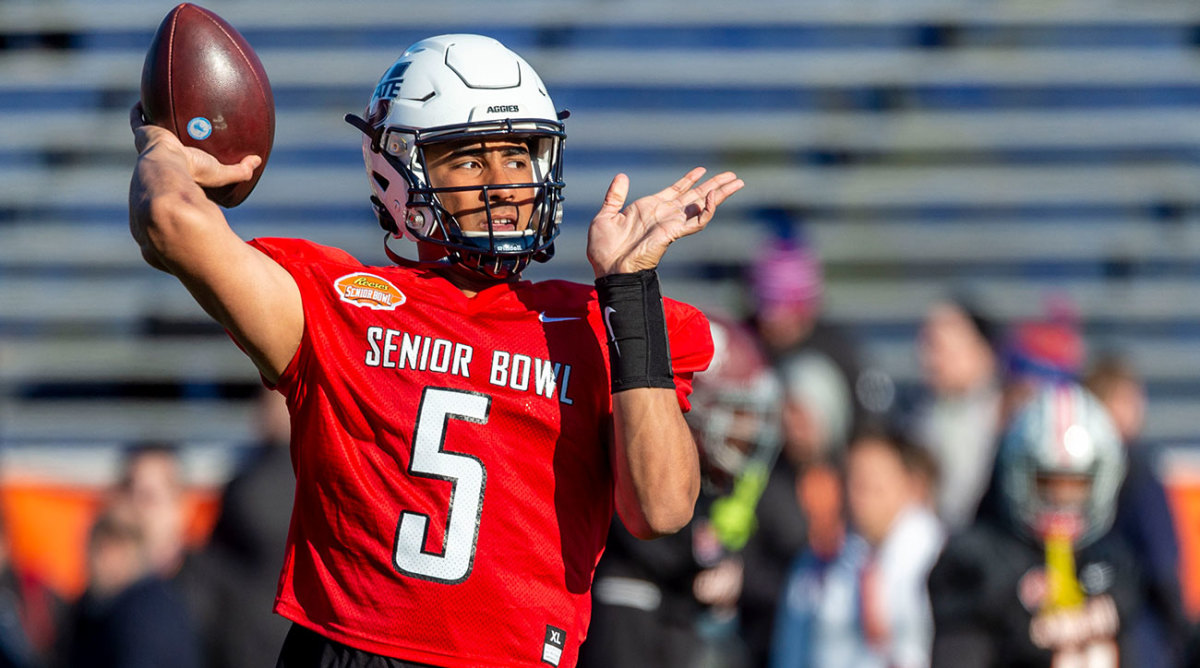How Much Do Teams Care About Marijuana-Related Incidents, Given the CBA Changes to the Policy?

INDIANAPOLIS— If the proposed CBA passes with a majority vote from NFL players, the league will make a major change to its drug policy as it relates to marijuana use.
The current proposal eliminates game suspensions strictly for positive marijuana tests, narrows the testing window from four months to two weeks before the start of training camp, reduces the number of players tested and increases the nanogram limit from 35 to 150.
These changes represent a huge win for players who want to use marijuana for treating injuries and anxiety. The NFL’s potential relaxing of the policy still pales in comparison to other professional sports leagues. While the NBA has a similar substance abuse program, MLB announced in December that it will remove marijuana from its list of banned substances. The NHL started the movement of decriminalizing marijuana use in professional sports, and instead recommends treatment for “abnormally high levels” of THC.
As the CBA takes shape here in Indianapolis, the changes to the drug policy raise an important question: How will the lesser punishments and loosened-up rules affect the way teams evaluate prospects and free agents who have a marijuana red flag in their past?
Utah State quarterback Jordan Love, who will likely be a first-round pick, was charged for marijuana possession in December. The charges were ultimately dropped, but Love is the exact prospect, with just one documented instance of marijuana use, who may benefit from the change in policy, and a shift in attitudes toward use of the drug.

In polling general managers and head coaches during their podium sessions, and floating the question to scouts and agents, many said that they didn’t think the changes to the policy would change their evaluation process much at all.
“Don’t think how we scout these guys will change,” said one scout. “It’s already a pretty relaxed policy on infrequent users and guys with infrequent failed tests.”
“I don’t think teams have cared about that for the last 10 years,” said one veteran NFL agent.
“I think it has been less of a big deal for a while, in my opinion,” said another scout.
But one team executive says he can already see a noticeable change in how his organization would weigh a marijuana incident. In a recent meeting about free agents, a player with a marijuana suspension wasn’t docked in the same way that he would have been in previous years. “In the past you were going to knock them down a round or in some cases, take them off the board completely. I think it will barely be mentioned now.”
Buccaneers head coach Bruce Arians admitted to some change in his thinking. “Yes and no,” he said, when asked if the policy change would affect his evaluation process. “I think it is still an individual thing. That guy has to prove to me it is not a problem and it’s not going to be a problem. That has always been a part of it, the relaxation of the rule is not a problem.”
One scout pointed out that while the weight of a marijuana “red flag” now might come with fewer tangible consequences, like dropping a round or two, it all depends on the context of the failed test. If a prospect tested positive at the combine, that would still be taken seriously because players know in advance they will be drug tested at the combine.
And even though the proposed policy is more lenient, a player with multiple positive tests and an established pattern of behavior will always be a concern for teams.
“It’s no different in some ways than alcohol,” said Packers general manager Brian Gutekunst. “If guys abuse it and it’s a problem, it’s a problem for us. And if they don’t, they don’t.”
One scout said, “Even with a relaxed policy, guys like Martavis [Bryant], Josh Gordon, Randy Gregory are going to miss games because they have true substance abuse issues that may stem from deep-rooted issues. For all others with infrequent positive tests, I don’t believe anything really changes.”
Because this CBA has not yet passed, it might be too early to say how this will affect the way teams value prospects and free agents with a marijuana suspension in their history. Even so, most team personnel I spoke with expressed support for the changes in the drug policy.
“That is something that needs our discussion and needs our time and is important to the players,” said Falcons coach Dan Quinn. “So we shouldn’t put a deaf ear onto that. So I am glad that people are looking into it and finding the benefits of how it could be.”
Question or comment? Email us at talkback@themmqb.com.
